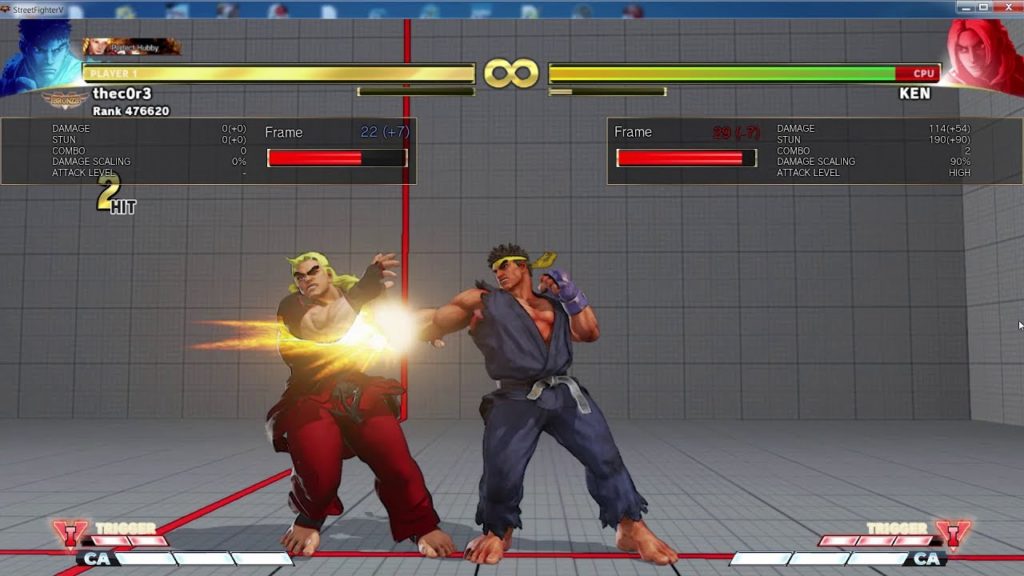When it comes to fighting games, there is a vast amount of tech and terminology to learn, with varying degrees of usefulness. One of those is the link, also known as a link.
We take a dive into what exactly a link is, its usefulness in fighting games, what it adds to a game’s depth, as well as how it compares to chains.
What Is A Link In Fighting Games?
A link is a sequence of moves that happen one after another without a move being canceled to achieve this. This differs from a chain in fighting games, where a chain is a sequence of moves tied together by canceling one move’s animation immediately into another move. Many combos in fighting games are the result of canceling a move that has successfully landed into another series of moves. As a result, chains are much more commonly performed in fighting games, and the timing to pull these off, while not easy, isn’t terribly precise.
Links, despite the simplicity of the above explanation, are actually much more difficult to pull off. Because a link doesn’t involve canceling one move into another, a successful link has much more specific requirements and a much tighter execution window. Some prerequisites to what makes a link possible include:
- The first move that lands in a sequence has to give the player enough of a frame advantage to pull off the next move before an opponent can recover to block or counterattack.
- The next move that can be performed after the first hit has to fit within the window of that established frame advantage.
- Because moves in a link do not involve canceling animations, all the moves in a link sequence have to be performed at a very specific time (they have to be inputted precisely around a character’s move animations.) If a move is performed too early or too late, the link won’t connect.
Essentially, a move has to land, and the follow-up to that move has to be executed in a very tight window to pull a successful link. Whereas chains have a lot more leeway and can be performed in a variety of ways, links require specific moves with specific timings to pull off successfully.
What Is A Frame Link?
A frame link, or 1-frame link, is a sequence of moves that are performed with a frame perfect timing. This means that after the first move has landed, the player must execute the next move on the exact frame, or 1/60th of a second, to successfully pull off the frame link.
The difficulty for this cannot be understated. Pulling off a frame link in training mode would take some time, and that’s without the pressure of a tough opponent. Pulling off a frame link in a real match means having a quick enough reaction to nail the frame-perfect input almost immediately after recognizing that the initial hit in a link has successfully landed.
Links Vs. Chains In Fighting Games
While not every move cancels into every other move in a fighting game, there are often a wide variety of combos to pull off in any traditional fighter. As such, chains are much more common in the meta than links. The more forgiving window of canceling one move into another, combined with a potential more damaging combo, make chains a better tool for newcomers and veterans alike.
Links, because of the nature of their precise requirements, are less varied in what moves connect into each other. Additionally, the tight inputs needed to pull off a frame link make these very tough to learn while not necessarily providing the biggest payoff. However, they provide another tool for a player to use for their character, and can sometimes allow for bigger payoffs when a move lands that would otherwise be unable to cancel into anything else.
Links In the FGC
Criticism of links in fighting games have been that they are too demanding technically and too situational in some places that they place an unnecessary difficulty burden for such rewards; games such as Street Fighter V have loosened the technical requirements for links to make them easier for new players to perform.
Players who view links in a positive light praise the difficulty requirements and believe links add considerable depth to the already complex structure of fighting games. Additionally, taking the time to learn and perform links in a high-pressure environment deserve some sort of reward for the hours put in.
Despite the simplicity of a link being one move connecting immediately into the next move, they are some of the hardest sequences to pull off in fighting games. While some view their technical requirements as a hindrance, the process of learning about and perfecting links in fighting games can do wonders for teaching players about precise inputs, timing and the value of frame data. It stops players from mashing and gets them to focus on what exactly they are doing, which can open them to a world of improvement.
